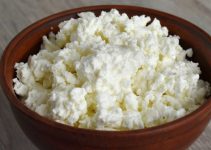Salmon is so nutritious that it is considered a “superfood.”
Not only does it provide us with many nutrients, but it also reduces the risk of disease.
Below you will find the 10 best health benefits of salmon.
What is Salmon?

Salmon is a medium-sized fish that belongs to the family of trout. It is found in fresh and saltwater environments. You can find it in North America, Asia, Europe, Australia, and Africa.
In addition, salmon is a type of fish that grows to about 2 feet, which is half as long as an average person.
This fish has a good amount of fat on the body and head, and it’s a popular food source in Asia.
Health Benefits of Salmon

1. Rich In Omega-3 Fatty Acids
100 grams of farmed salmon provides us with 2.3 grams of omega-3 fatty acids. A similar serving of wild salmon contains 2.2 grams.
According to health organizations, the recommended serving size for an adult is between 250 and 1000 mg of omega-3s per day.
The fatty acids present in salmon (EPA and DHA) have many health benefits: they reduce inflammation, control blood pressure, and lower cancer risk.
According to a review of 22 studies, the consumption of EPA and DHA supplements improves arterial function.
In addition, a study showed that consuming salmon increases omega-3 levels in the body as effectively as fish oil capsules do.
2. Great Source Of Protein
Proteins fulfill essential functions in the body to help heal wounds, protect bone health, and maintain muscle mass.
According to research, each meal should provide us with at least 20-30 grams of high-quality protein to maintain good health.
A 100 gram serving of salmon contains 22-25 grams of protein.
3. Good Source of Vitamins and Energy
A portion of 100 grams of wild salmon provides us with these amounts of vitamin B:
- vitamin B12: over 100% of the Daily Value (DV)
- vitamin B6: 56% of the DV
- niacin: 63% of the DV
- pantothenic acid: 38% of the DV
- riboflavin: 38% of the DV
- folic acid: 7% of the DV
- thiamine: 23% of the DV
According to studies on these vitamins, they turn food into energy, create and repair DNA, improve brain functions and reduce inflammation.
4. May Benefit People With Hypertension
A 100 gram serving of wild salmon provides us with 13% of the recommended daily value of potassium (farmed salmon provides us with 8% of the DV).
Potassium is important because it helps regulate blood pressure and reduces the risk of heart attacks.
A review found that potassium supplements help lower blood pressure in those with hypertension.
In addition, potassium acts on sodium and prevents fluid retention. In this way, it helps regulate blood pressure.
5. May Improve Bone Health
According to research, selenium is beneficial because it protects bone health, reduces cancer risk, and lowers thyroid antibodies in people with autoimmune thyroid disease.
100 grams of salmon provides us with 75-85% of the DV of selenium.
In this way, salmon consumption helps increase the levels of selenium in the blood in people who are deficient in this mineral.
One study found that consuming salmon twice a week helps increase selenium levels more than consuming fish oil capsules.
6. May Help Reduce Bad Cholesterol (LDL)
Astaxanthin is an antioxidant that provides us with many health benefits. For example, it reduces the levels of bad cholesterol (LDL) in the blood, which reduces the risk of heart disease.
According to research, astaxanthin helps reduce inflammation, fights oxidative damage, and protects against fatty plaques in the arteries.
Another study maintains that this antioxidant works with the omega-3 fatty acids present in salmon and protects the nervous system against inflammation.
On the other hand, a study carried out on people with skin damaged by sunburn, the consumption of 2 mg of astaxanthin mixed with 3 mg of collagen improves the elasticity and hydration of the skin.
100 grams of salmon provides 0.4–3.8 mg of astaxanthin.
7. May Reduce The Risk Of Heart Disease
Consuming salmon reduces the risk of cardiovascular disease. The reason is that, according to studies, omega-3 fatty acids help regulate omega-6 fatty acids, reducing the risk of heart disease.
One study found that consuming farmed salmon twice a week increases omega-3 levels by 8-9% and reduces omega-6 levels.
In addition, a study ensures that regular consumption of salmon helps regulate triglyceride levels in the blood.
8. May Aid Weight Loss
As it is a food rich in protein, salmon helps regulate hormones that control appetite while increasing the metabolic rate.
According to research, the consumption of salmon helps reduce abdominal fat for those who are overweight.
On the other hand, a study on children with the fatty liver disease found that omega-3s in salmon help lower belly and liver fat.
9. Can Help Fight Inflammation
Several studies have shown that fish consumption helps reduce inflammation markers in people at risk of chronic diseases.
One study found that regular fish consumption helps reduce white blood cell levels, which indicate inflammation.
10. May Protect Brain Health
Both salmon and fish oil help reduce symptoms of depression, protect fetal brain health during pregnancy, reduce anxiety, protect against memory loss, and lower the risk of dementia.
One study found that consuming one serving of fish per week helps reduce the risk of cognitive decline.
Conclusion
Salmon is delicious and can also be consumed in different ways. This means that it is a very versatile food.
A great option is to consume canned salmon since it is cheaper and preserves all its nutritional properties.





